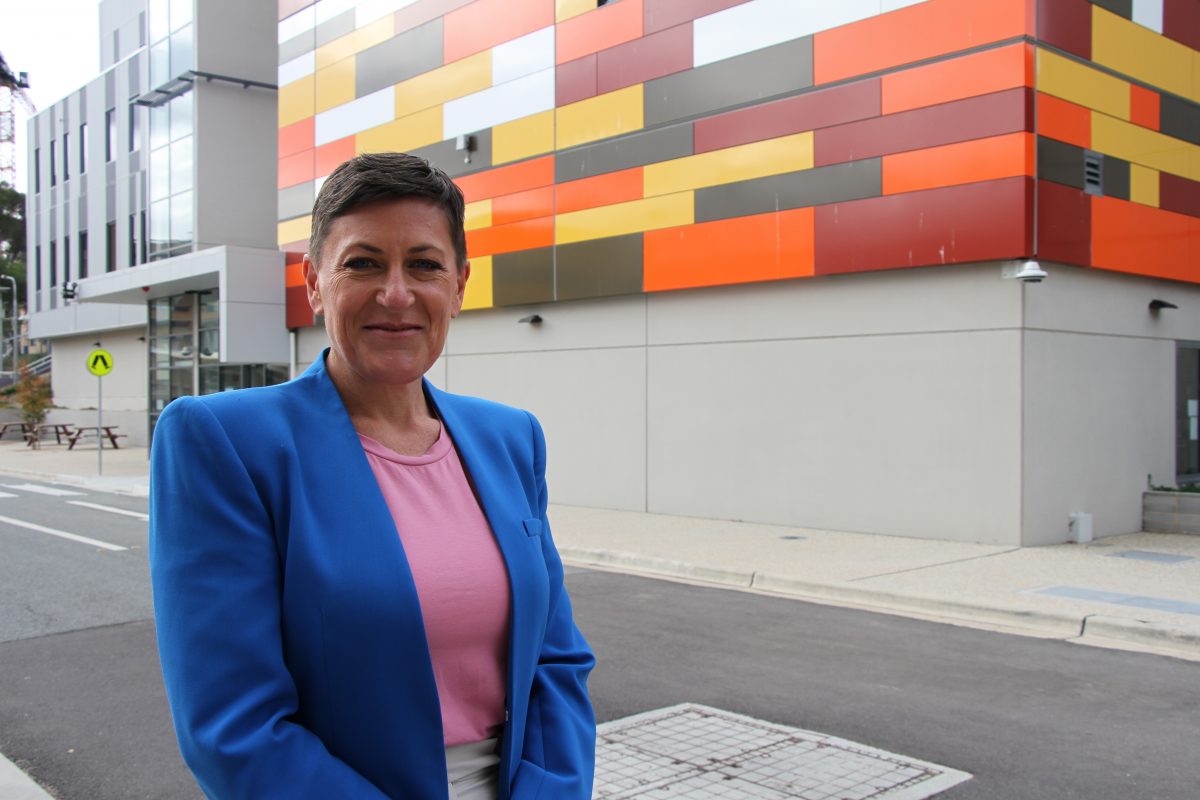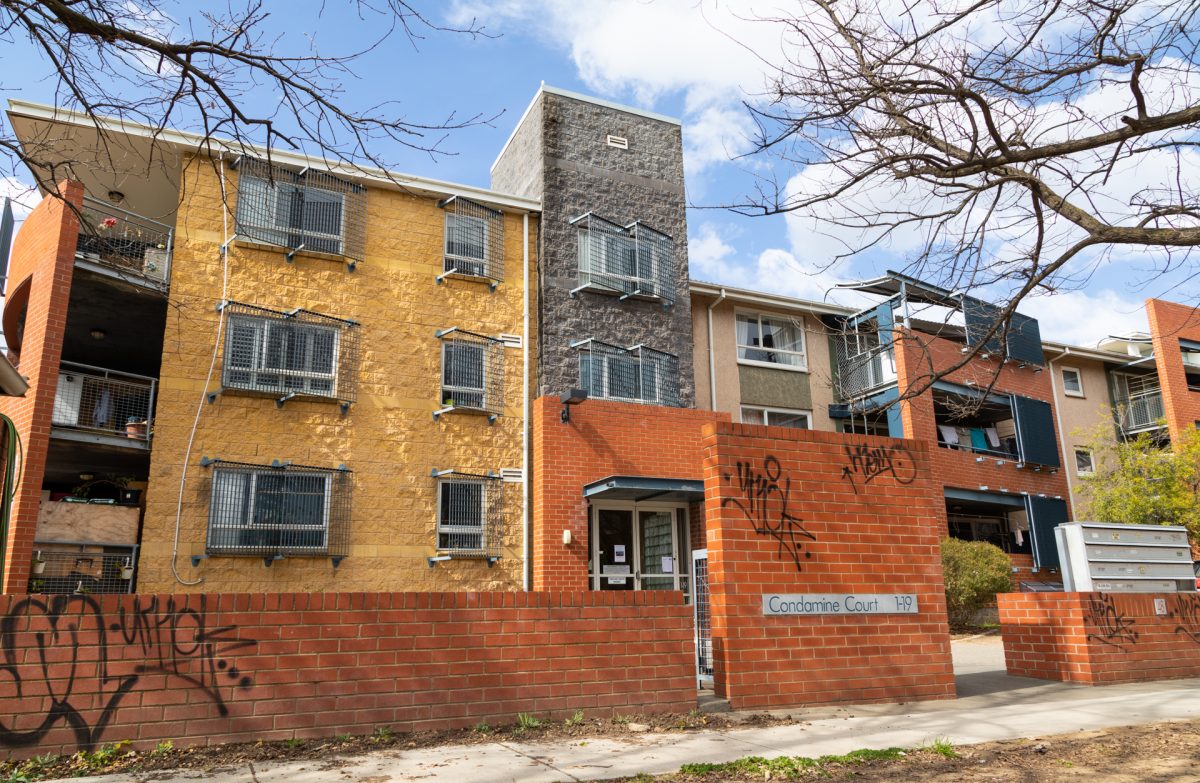
Dr Rebekah Ogilvie oversaw the response to COVID-19 outbreaks in social housing last year. Photo: Lottie Twyford.
When the Territory went into lockdown on 12 August last year, most Canberrans retreated to the relative comfort of their homes to wait it out.
That wasn’t the case for Dr Rebekah Ogilvie, nor was it the case for many residents in social housing – a vulnerable population through which the virus started to spread.
It was a time when ACT residents (or Ken Behrens, for a short while) were glued to daily press conferences with Territory officials. Many held their breath when the first outbreak hit social housing – first at Condamine Court and later at Ainslie Village.
The team then took their knowledge and expertise to the Territory’s purpose-built quarantine facility, Ragusa, in O’Connor.
As a Nurse Practitioner who also has a background in clinical academia, Dr Ogilvie spearheaded the Territory’s response to support these residents.
The purpose of the program, the Canberra Health Services (CHS) nurse said, was simple.
“We needed to provide on-site care to the residents, including wraparound all-day support in areas like mental health and alcohol and other drugs, to encourage them to quarantine safely and effectively,” she explained.
Dr Ogilvie has been named 2022 ACT Nurse of the Year for her work.

Condamine Court in Turner was locked down in late August last year due to COVID-19. Photo: Michelle Kroll.
The approach taken by Dr Ogilvie and her team was anything but ‘straightforward’.
“These populations can be quite vulnerable, and people can have quite complex needs, and they often are used to having a lot of in-reach support from community-led services like Directions [which delivers programs and services to people impacted by alcohol, drugs and other addictions] and CAHMA [the Canberra Alliance for Harm Minimisation and Advocacy], so we linked up with them.”
Like many healthcare workers, Dr Ogilvie had been moved from her usual role at a Walk-in Centre to something completely different when COVID-19 reared its ugly head in Canberra for the second time.
But it was a role she was well prepared for, having been trained in disaster management and response.
In fact, in a previous job at the Royal Prince Alfred Hospital, she’d been part of AUSMAT teams, and while she wasn’t deployed, she was on standby for the 2004 Indonesian tsunami and Sierra Leone’s Ebola outbreak.
She was also on standby to evacuate the first few COVID-19 cases from Wuhan in 2019 and early 2020.
“I went into that whole zone of thinking, ‘this is an emergency and this is what I have to do,'” she said.
“We just focused on containing the spread and keeping people on-site. In hindsight, I think that’s something we did really well.”
In many social and public housing complexes, the difficulty containing the spread of the virus was exacerbated by their layout in which communal living areas are common.
Looking back, Dr Ogilvie attributes the team’s success to the fact they engaged with community health and non-government services.
“Sometimes, when you feel vulnerable, engaging with government services can feel very overwhelming and peer-to-peer support services have better-established trust and relationships with vulnerable communities,” she explained.
“But I also don’t think they could have done it by themselves.”
Dr Ogilvie said that’s where lessons could be learned.
She’s also clear that nurses, including those who specialise in spaces like mental health and alcohol and other drugs, have much to bring to the table when it comes to disaster management as they do have a “different skillset” to emergency physicians who often lead such responses.
“[The COVID response] was a nurse-led service – which is often few and far between. But we had the trust of government and other professions, like medicine, to let us go ahead and do it – and it worked really well,” Dr Ogilvie said.
“Nurses are often able to speak ‘normal speak’. We are great diplomats and negotiators and we work collaboratively and inclusively.”












